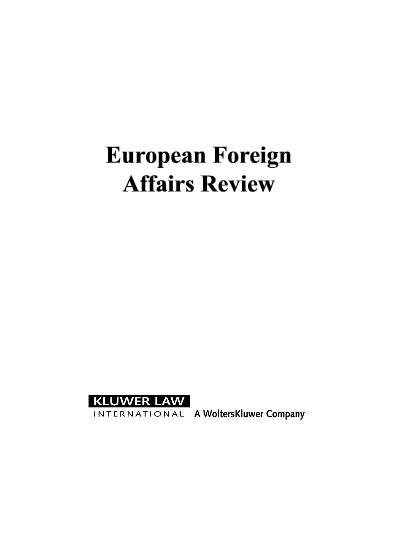Complementarity and Rivalry in EU-China Economic Relations in the 21st Century

Economic dynamism in the People’s Republic of China over the past two decades, in contrast with sluggish growth in an enlarged European Union, makes the examination of contemporary and future EU–China economic relations all the more relevant. This examination is done by highlighting complementary and opposing forces between the two regions. It underlines the asymmetry in the trade relationship – with a growing EU trade deficit – and a declining share of EU foreign direct investment since the peak years in the late 1990s.
In terms of trade patterns, a certain degree of complementarity still exists between the two regions, with China relatively engaged in low-knowledge-intensive industries (such as office machinery and computers), although the move up the value chain is rapid. This still leaves scope for a manufacturing–services complementarity. Areas of possible rivalry include the perception, by the EU, of an ‘unfair’ Chinese competition, the opacity of the Chinese market, and allegations of dumping by Chinese firms, an issue related to its non-market economy status.
In the future, the fifth enlargement may lessen the complementarity (and therefore increase the level of competition), thus generating another challenge. Faced with these numerous challenges, a number of solutions are proffered, among which are multilateralism and cooperation on energy

Available in:
Regions and themes
Share
Download the full analysis
This page contains only a summary of our work. If you would like to have access to all the information from our research on the subject, you can download the full version in PDF format.
Complementarity and Rivalry in EU-China Economic Relations in the 21st Century
Related centers and programs
Discover our other research centers and programsFind out more
Discover all our analysesJapan’s Takaichi Landslide: A New Face of Power
Prime Minister Sanae Takaichi has turned her exceptional popularity into a historic political victory. The snap elections of February 8 delivered an overwhelming majority for the Liberal Democratic Party (LDP), driven by strong support from young voters, drawn to her iconoclastic and dynamic image, and from conservative voters reassured by her vision of national assertiveness. This popularity lays the foundation for an ambitious strategy on both the domestic and international fronts.
The U.S. Policy Toward Taiwan Beyond Donald Trump: Mapping the American Stakeholders of U.S.-Taiwan Relations
Donald Trump’s return to the White House reintroduced acute uncertainty into the security commitment of the United States (U.S.) to Taiwan. Unlike President Joe Biden, who repeatedly stated the determination to defend Taiwan, President Trump refrains from commenting on the hypothetical U.S. response in the context of a cross-Strait crisis.

China’s Strategy Toward Pacific Island countries: Countering Taiwan and Western Influence
Over the past decade, China has deployed a diplomatic strategy toward the Pacific Island Countries (PICs). This strategy pursues two main objectives: countering Taiwan's diplomatic influence in the region and countering the influence of liberal democracies in what Beijing refers to as the "Global South."

Opening up the G7 to South Korea to Address Contemporary Global Challenges
The G7’s global influence has diminished as powers like China reshape international governance through initiatives such as BRICS and the Shanghai Cooperation Organisation (SCO). With the G7 now representing just 10 per cent of the world’s population and 28 per cent of global GDP, its relevance is increasingly questioned.










